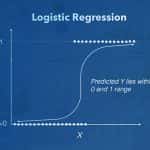Artificial intelligence is reinventing the retail sector. It will be undergoing a major transformation in the years to come. The automation of business processes, enhanced productivity, flawlessness, and impeccable customer service are some of the results of AI implementation. There are several ways in which AI can catalyze the growth of retail businesses.
The primary objective of any retail business owner is to gain a competitive edge and have a loyal customer base. Customer responsiveness, customer loyalty and customer retention play a significant role here. The dynamism of consumer behaviour is a challenging issue. And so, retail business owners needs to switch to a medium that helps them stay abreast with these changes. Thus helping them formulate customer-centric strategies. With the help of Artificial Intelligence, tapping the changing behaviour, and unveiling the consumer preferences becomes easier. Therefore, the application of artificial intelligence in the retail industry is rapidly increasing.
Overview of How AI Is Changing Retail
- AI-powered systems will work to optimize customer experience, manage inventory and in sales forecasting.
- Technologies like computer vision will bring near real-time intelligence to even brick-mortar stores.
- Developments like intelligent display ads, endless aisle kiosks, advanced inventory control, and smart checkout are some of the key applications of AI in retail.
Key Updates on AI Development:
- A study by Accenture found that retailers using AI can expect to see an average increase in sales of up to 35%.
- In the Union Budget 2023, the Government of India plans to set up 3 Centers of Excellence to promote the application of AI across the industry spectrum.
- The global AI in retail is expected to swell from under $5 billion in 2021 to more than $31 billion by 2028.
- AI fraud detection can reduce losses in retail by up to 40%
Read: Role of Artificial Intelligence in Cybersecurity
Leveraging AI for Competitive Advantage
1. It’s All About Enhancing Customer’s Experience
Enhancing customer experience is the prime objective of every retail business owner. There are several ways to achieve this, like providing personalized services and convenient shopping experience. The customer should be able to find the desired product without delay. AI can streamline all these activities, thereby creating a satisfying shopping experience.
2. Keep a Tab on Inventory Status
AI can help retailers manage their inventory more efficiently. AI-powered tool can analyze sales data and predicting future demand. Thus enabling retailers to make informed decisions like the right time to order new products, quantity of order, and how to allocate their inventory across stores and online channels. AI can also monitor stock levels in real-time and alert retailers to potential out-of-stock situations, allowing them to respond quickly and reduce the risk of lost sales.
3. Optimize the Supply Chain System
AI is revolutionizing the supply chain management. It empowers the business owners to improve efficiency and reduce costs. AI algorithms can help retailers to optimize their supply chain processes by analyzing data such as shipping times, transit costs, and inventory levels. This information can be used to identify areas for improvement and make data-driven decisions that increase efficiency and reduce costs.
4. Predictive Analytics
Retailers are using AI to analyze vast amounts of data to gain insights into consumer behaviour, market trends, and sales patterns. This information can be used to make informed decisions about product development, pricing strategies, and marketing campaigns. By using AI to analyze customer data in real-time, retailers can quickly respond to changes in market conditions and capitalize on new opportunities.
5. Fraud Detection
AI can help retailers to detect and prevent fraud by analyzing customer data and identifying suspicious behaviour. AI algorithms can detect patterns in customer behaviour that are indicative of fraud, such as unusual spending patterns or multiple purchases from the same IP address. By using AI to monitor transactions in real time, retailers can reduce the risk of fraud and minimize the impact of fraud on their bottom line.
6. Supply Chain Optimization
AI is revolutionizing the way retailers manage their supply chains, enabling them to improve efficiency and reduce costs. AI algorithms can help retailers to optimize their supply chain processes by analyzing data such as shipping times, transit costs, and inventory levels. This information can be used to identify areas for improvement and make data-driven decisions that increase efficiency and reduce costs.
Also Read: How to Become an Artificial Intelligence (AI) Engineer?
From Chatbots to Personalization: Companies Using AI for Better Customer Experience
eBay – The company uses AI to recommend products and improve shipping and delivery times. Moreover, eBay also has AI-powered functions like Find It On eBay, Image Search and eBay ShopBot, which offers shopping assistance on Facebook Messenger.
Amazon- Amazon is a renowned platform, and it also uses AI to improve customer experience. With the help of AI, customers can voice shop and get purchasing recommendations on Amazon. Besides, Amazon also uses AI for facial recognition, visual search, autonomous driving and more.
Yet another significant development in this domain is Amazon Echo. With this, Amazon customers can now make voice-activated payments. In addition, the company also has come up with the concept of the checkout-free grocery store, Amazon go. It uses AI to differentiate the items selected by the customers as well as estimate the consumer’s behaviour. Presently it is active in Chicago, Seattle, San Francisco and New York.
3PM-3 PMconBob, 3PM’s AI product, uses machine learning algorithms to detect online counterfeiting on marketplace websites such as Amazon, eBay, and Walmart. By leveraging Google Cloud Platform services, it helps to improve the accuracy of seller ratings and protect clients and their customers from fake products. The AI technology behind ReconBob is designed to continuously learn and improve, making it a more effective tool in the fight against counterfeiting.
Alibaba- Alibaba uses AI for innovative solutions such as augmented reality mirrors, facial recognition payments, and interactive in-store mobile phone games. The company has also developed an AI copywriting product that leverages deep learning models and natural language processing. This product is capable of generating up to 20,000 lines of content per second, demonstrating the power and efficiency of Alibaba’s AI technology.
The Next Big Thing
While Data Science, AI and ML are the next big thing in the technological domain, you too can take a big leap in your career by gaining expertise in these technologies. With Pickl.AI as your learning platform, you can now master the concepts of Data Science, Artificial Intelligence and Machine learning. So, don’t delay your learning journey and join the affordable data science course online with Pickl.AI.











